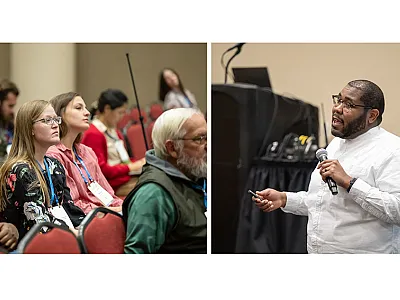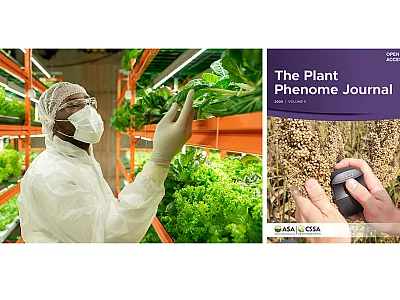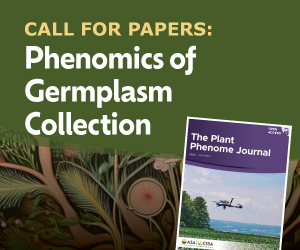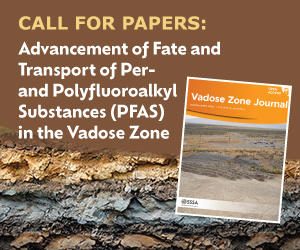Virginia Tech Wins 2024 National Soil-Judging Championship
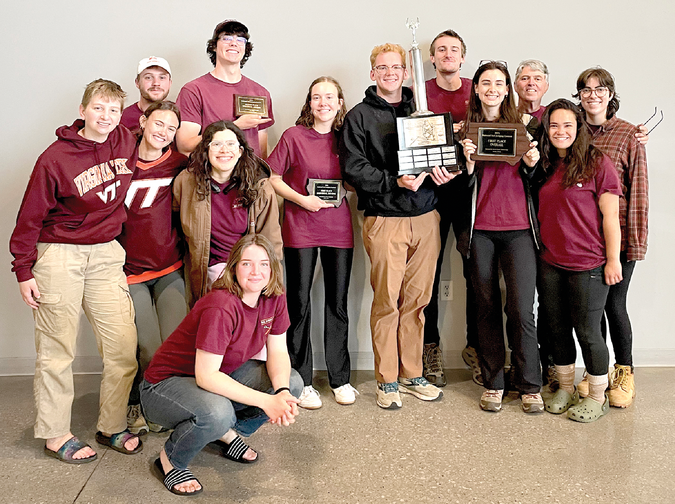
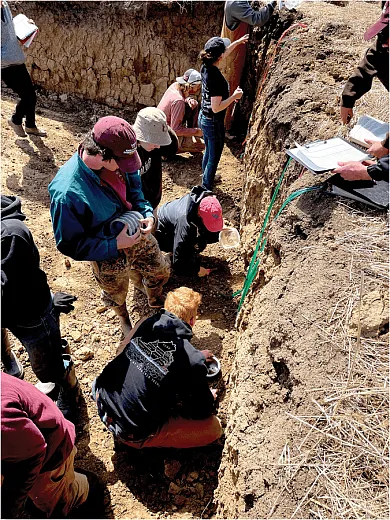
The Virginia Tech Hokies Soil‐Judging Team finished first in overall score out of 25 teams at the 2024 National Collegiate Soils Contest sponsored by SSSA and hosted by Drs. Amber Anderson and Lee Burras of Iowa State University on April 21–26 near Ames, IA. The Hokies finished in first place, followed by the University of Nebraska–Lincoln, University of Wisconsin–Platteville, Purdue University, and North Carolina State University. In the group‐judging event, the University of Illinois was first followed by the University of Nebraska–Lincoln and the University of Maryland. The University of Idaho, University of Tennessee–Knoxville, Penn State University, and the University of Arkansas finished in a tie for fourth.
Elizabeth (Liz) Eroshenko of Virginia Tech captured first place in the individual contest, followed by teammate Matthew Smith. Following behind Smith were Mason Rutgers, University of Nebraska–Lincoln (third); Jackson Christenson, University Wisconsin–Platteville (fourth); and Tegan Macy, University of Idaho (fifth). The contest was well attended. There were 99 students in the official contest and another 106 alternates for a total of 205 participants.
The contest consisted of four days seeing practice pits all across central Iowa, and on contest day, there were three individual soil pit descriptions and two group‐judged pits. The weather was mostly sunny but with cold and gusty winds every day. Teams saw a wide variety of recent parent material deposits in cropland, pasture, and forest, including glacial till and outwash, recent hillslope colluvium, loess, and alluvium. They also saw older till and colluvium and multiple combinations of parent materials.
“This contest was very well attended because it was held in the heartland of America and because the contest hosts worked hard to make everyone feel they are welcome and active participants,” says Virginia Tech Coach John Galbraith, professor of soil and wetland sciences in the School of Plant and Environmental Sciences. “We all greatly appreciate their willingness to accommodate such a large number of students interested in learning about their soils. Soil judging is a perfect way for students to enhance their resume and gain some practical field skills.”
Soil judging is a perfect way for students to enhance their resume and gain some practical field skills
The contest hosts held a lecture for students about the unique geology of the area, and they were able to see how well the soils were for different uses: growing corn, septic tank drain fields, houses with basements, and local roads. The students saw how the soil classification system worked to separate soils based on their suitability or their limitations.
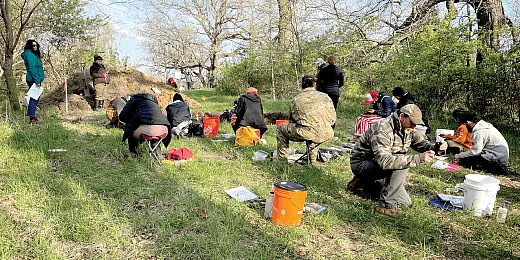
Text © . The authors. CC BY-NC-ND 4.0. Except where otherwise noted, images are subject to copyright. Any reuse without express permission from the copyright owner is prohibited.




